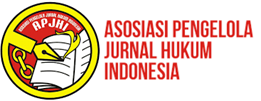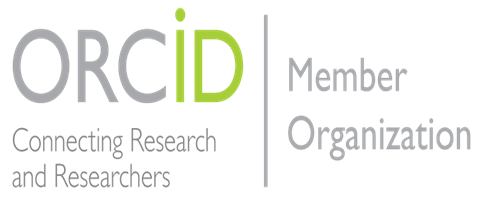The Criminal Acts of Corruption as Extraordinary Crimes in Indonesia
DOI:
https://doi.org/10.70193/ijlsh.v1i1.141Keywords:
Corruption; Extraordinary Crime; IndonesiaAbstract
Corruption in Indonesia Law is almost present throughout the Law of the government, h at the central and regional levels. Although there are various disagreeing parties of corruption classified as extraordinary crimrally argue that corruption in Indonesia can be categorized as an e,xtraordinary crime because it is organized, systemic, a,nd has been looting so that it can negatively impact economic growth, legal enforcement, and national security stability. Therefore, to combat corruption crimes in Indonesia, the government has issued No. 31 of 1999 and No. 20 of 2001 on the eradication of corruption crimes as a legal basis for the eradication of corruption in Indonesia. However, with the issuance of Law No. 19 of 2019 for the amendment of Law No. 30 of 2002 on the Eradication Commission, various legal experts have assessed that corruption crimes in Indonesia can no longer be classified as extraordinary crimes because some of the extraordinary powers that KPK has as the spearhead of corruption eradication in Indonesia have been eliminated
Downloads
References
Ali, K. (2024). Penyidikan Terhadap Tindak Pidana Korupsi Dana Bantuan Operasional Sekolah (BOS) di Kabupaten Bireuen. Cendekia : Jurnal Hukum, Sosial Dan Humaniora, 2(1), 456–464. https://doi.org/https://doi.org/10.5281/zenodo.10531176
Arief, B. N. (1994). Kebijakan Legislatif Dalam Penanggulangan Kejahatan dengan Pidana Penjara. CV. Ananta.
Atmasasmita, R. (2002). Korupsi, Good Governance dan Komisi Anti Korupsi di Indonesia. Badan Pembinaan Hukum Nasional Departemen Kehakiman dan HAM RI.
Budyanto, W. (2013). Penegakkan hukum tindak pidana illegal loging (antara harapan dan kenyataan). Yustisia, 2(2), 91–100.
Cees, S. (1998). Fighting Money Laundering. Kluwer Law International.
Cevilla, C. G. (1993). Pengantar Metode Penelitian. Universitas Indonesia Press.
Cofey, A. (1982). An Introduction to the Criminal Justice System and Process. Prentice Hall.
Deyana, G. (2020). Implementation of Indonesia’s Mutual Legal Assistance Policy Regarding Asset Recovery of Corruption Crimes. 1st International Conference on Law Studies “Law Policy on Transnational Issues", 66, 70–84.
Girsang, A., Hatta, M., & Herinawati. (2023). Pelaksanaan Peradilan In Absentia di Pengadilan Tindak Pidana Korupsi Banda Aceh. Cendekia : Jurnal Hukum, Sosial Dan Humaniora, 1(2), 107–131.
Hiariej, E. O. . (2019). United Nations Convention Against Corruption dalam Sistem Hukum Indonesia. Mimbar Hukum, 31(3), 112–125.
Indonesia Corruption Watch. (2018a). Catatan Pemantauan Perkara Korupsi Yang Divonis oleh Pengadilan Selama 2017, Vonis Pengadilan Untungkan Koruptor. ICW Press.
Indonesia Corruption Watch. (2018b). Outlook Korupsi Politik 2018: Ancaman Korupsi di Balik Pemilu 2018 dan 2019. ICW Press.
Indonesia Corruption Watch. (2018c). Tren Penindakan Kasus Korupsi Tahun 2017. ICW Press.
Iriani, D. (2015). Kejahatan Narkoba: Penanggulangan, Pencegahan dan Penerapan Hukuman Mati. Justutua, 12(2), 305–330.
Jayawickrama J and Stople, O, N. and P. (2002). Legal Provisions to Facilitate the gathering of evidence in Corruption cases: easing the burden of proof. Forum on Crime and Society, 2(1), 23–31.
Jiang, G. M. H. & S. (2017). The Economics of Corruption and the Corruption of Economics: An Institutionalist Perspective. Journal of Economic Issues, 41(4), 1043–1061.
Julpandi, Hatta, M., & Hamdani. (2024). Kedudukan Hukum Whistle-Blower Dalam Penanggulangan Tindak Pidana Korupsi di Indonesia. Endekia : Jurnal Hukum, Sosial Dan Humaniora, 2(2), 487–507. https://doi.org/https://doi.org/10.5281/zenodo.10934449
Komisi Pemberantasan Korupsi. (2018). Laporan Tahunan.
Kovač, M. (2007). International Criminalisation of Terrorism. Hrvatski Ljetopis Za Kazneno Pravo Praksu, 14(1), 267–290.
McCracken, G. . (1998). The Long Interview. Sage.
Nurdjana, I. (2009). Sistem Hukum Pidana dan Bahaya Laten Korupsi (Problematik Sistem Hukum Pidana dan Implikasinya pada Penegakan Hukum Tindak Pidana Korupsi). Total Media.
Prahassacitta, V. (2016). The Concept of Extraordinary Crime In Indonesia Legal System: Is The Concept An Effective Criminal Policy? Humaniora, 7(4), 513–521.
Prahassacitta, V. (2017). Siapa Subjek Tindak Pidana Korupsi Di Indonesia? Https://Business-Law.Binus.Ac.Id. https://business-law.binus.ac.id/2017/02/26/siapa-subjek-tindak-pidana-korupsi-di-indonesia/
Rochmi. (2018). The Concept of Jus Cogens in the Vienna Convention on the Law of the Treaties, Vol. 51, (2018), 1-12. Transparency International, 51, 1–12.
Rubio, D. F. (2018). Corruption Perceptions Index 2017. Transparency International.
Rugman, A. (2000). The End of Globalization. Random House Business Book.
Rukmini, M. (2010). Aspek Pidana dan Kriminologi. Alumni.
Sen, A. (1999). Development As Freedom. Oxford University Press.
Sukardi. (2005). Sukardi, Illegal Longging dalam Perspektif Politik Hukum Pidana (Kasus Papua). Universitas Atmajaya Yogyakarta Press.
Syihab, M. A., & Hatta, M. (2022). Punishment Weighting for Criminal Acts of Corruption in Indonesia. Sasi, 28(2), 307–322.















